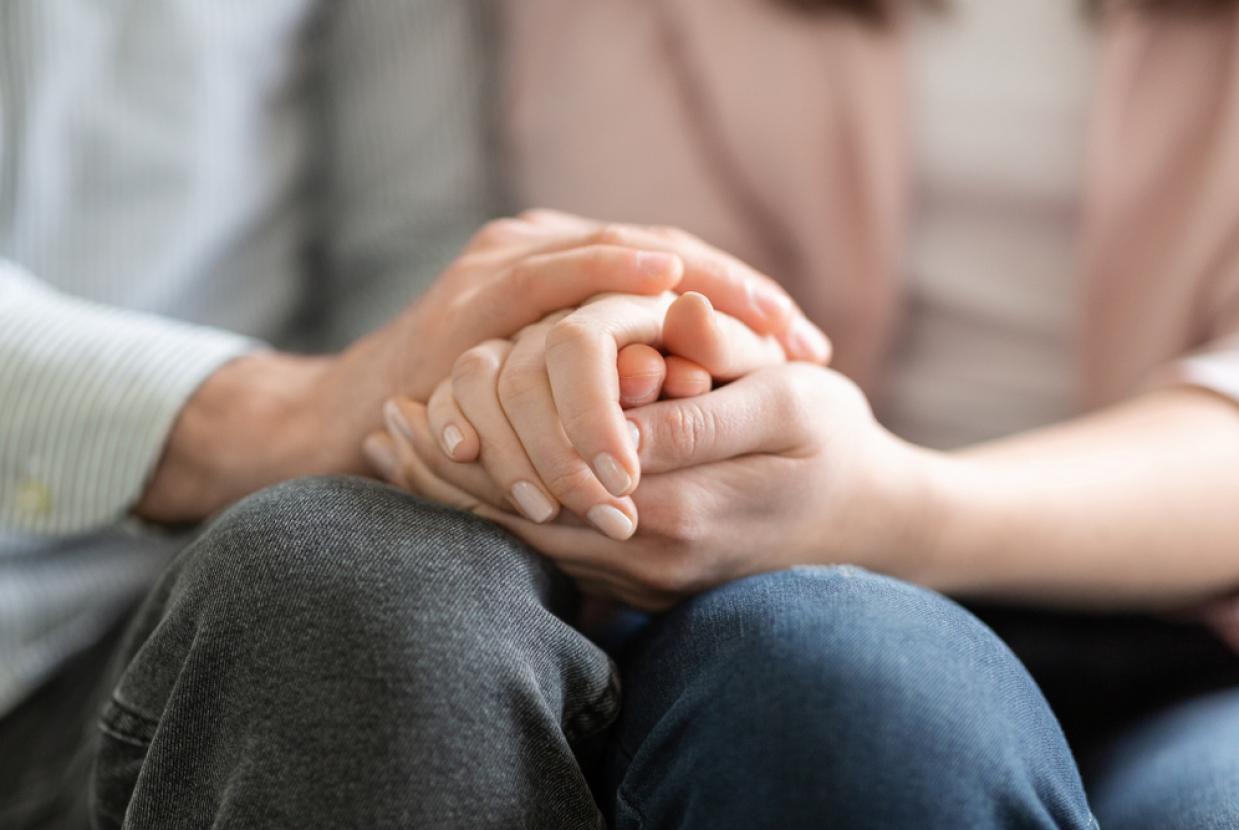Guide to STIs
An STI is a sexually transmitted infection. STIs are passed on through sexual contact with someone who is infected
What if I think I have an STI? If you think you may have an STI, visit your GP, pharmacist or an STI clinic for professional advice. You will find a list of free STI testing services at the end of this guide.
How would I know if I had an STI? You may not know if you have an STI, so it is important to be tested. Your partner should also be tested. When should I have a test? You should be tested if:
- You have any symptoms which suggest an STI (see symptoms below).
- Your partner has an STI.
- You change your sexual partner.
- You have multiple sexual partners
STI facts:
- You can get an STI the first time you have sex.
- You can get an STI even if you know your partner.
- You can’t tell if someone has an STI by looking at them.
- You can get STIs from oral sex.
- You can be infected with more than one STI at a time.
- You can get an STI more than once
Common STIs and genital conditions
Chlamydia
What is chlamydia? Chlamydia is a bacterial infection. It is one of the most common STIs. If it is not treated, it can cause infertility in women.
How do I get chlamydia? Chlamydia is passed from one person to another from:
- unprotected sex (oral, vaginal, anal)
- mother-to-baby during delivery Chlamydia can infect the cervix (neck of the womb), urethra (the tube through which you pass urine), rectum (back passage), pharynx (throat) and sometimes the eyes.
You cannot catch chlamydia by hugging, kissing, swimming, from sitting on toilet seats or sharing cutlery or towels.
What symptoms would I have with chlamydia? Half the men with chlamydia and 7 out of 10 women with chlamydia don’t experience any symptoms. If you do have symptoms, they include:
Men
- discharge from the tip of the penis
- pain or discomfort passing urine
- bowel symptoms such as diarrhoea, pain, mucus discharge or bleeding from the back passage
- pain and swelling in one or both testicles
Women
- bleeding after sex
- bleeding between periods
- change in your normal vaginal discharge
- pain passing urine
- pain in your abdomen (tummy)
Can chlamydia be treated? Yes. Chlamydia is treated with antibiotics
How can I prevent myself from getting chlamydia again? Using condoms correctly and every time you have sex will reduce your risk of getting chlamydia. If you have a new partner it is a good idea for both of you to have a sexual health check-up before any unprotected sex.
Gonorrhoea
What is gonorrhoea? Gonorrhoea is a curable bacterial infection. If it is not treated, it can cause infertility in women. Gonorrhoea can infect the cervix (neck of the womb), urethra (the tube through which you pass urine), the rectum (back passage), pharynx (throat) and sometimes the eyes.
How do I get gonorrhoea? Gonorrhoea is passed from one person to another through:
- unprotected sex (oral, vaginal, anal)
- mother-to-baby during delivery
You cannot catch gonorrhoea by hugging, kissing, from swimming pools or saunas, toilet seats or sharing cutlery or towels
What symptoms would I have?
Men
- discharge from the tip of the penis
- burning pain when passing urine
- 1 in 10 men have no symptoms
- bowel symptoms such as diarrhoea, pain, mucus discharge or bleeding from the back passage
- pain and swelling in one or both testicles
Women
- > 7 in 10 women have no symptoms
Can gonorrhoea be treated? Yes. Gonorrhoea is treated with antibiotics. Your partner should also be tested and treated.
How can I prevent myself from getting gonorrhoea again? Use condoms every time you have sex. If you have a new partner, it is a good idea for both of you to have a sexual health check-up before any unprotected sex.
HIV
What is HIV? Human Immunodeficiency Virus (HIV) is a virus that attacks the human immune system and weakens its ability to fight infection and disease.
How do I get HIV?
- having sex without a condom (vaginal or anal) with someone who is HIV positive and not on effective HIV treatment
- sharing needles or works (injecting equipment) with someone who is HIV positive and not on effective HIV treatment
- during pregnancy, delivery or breastfeeding from mother-to-baby where the mother is not on effective HIV treatment
- contaminated blood products (very unlikely in Ireland as all donors are tested)
You cannot get HIV from touching, hugging or kissing, coughing or sneezing, sharing a glass, cup, cutlery or other utensils, from saliva, sweat or urine or from sharing a public toilet
Treatment as prevention (TasP) is when a person living with HIV is on treatment, there is effectively no risk that they can pass on HIV to another person, once they achieve and maintain an undetectable viral load (when HIV treatment has brought the level of virus in the body to such low levels that blood tests cannot detect it).
What symptoms would I have? Some people get a flu-like illness when they first become infected with HIV. If you have these symptoms after a potential exposure to HIV, you should go for a HIV test. Many people are often unaware that they’re infected because they may not feel sick right away or for many years after being infected with HIV. If you have been at risk of getting HIV, it is important to get tested.
How can I protect myself from getting HIV? You can reduce your risk of getting HIV by:
- using condoms every time you have vaginal or anal sex
- not sharing needles or other injecting equipment, including spoons, filters and water
- taking post-exposure prophylaxis (PEP) if you have been exposed to HIV
- taking pre-exposure prophylaxis (PrEP) if you are at substantial risk
- getting tested and knowing your HIV status
Can HIV be treated? HIV can be treated effectively with medications. HIV treatment stops HIV reproducing in the body. When taken properly, HIV treatment enables most people with HIV to live a long and healthy life. When taken properly, HIV treatment also reduces the chance of a person living with HIV passing HIV on to someone else. When a person living with HIV takes their treatment properly, so that they achieve and maintain an undetectable viral load, there is effectively no risk that HIV can be passed on to their sexual partners. The earlier you are diagnosed and can start treatment, the better. At the moment there is no cure for HIV, which means that treatment is lifelong
Syphilis
What is syphilis? Syphilis is caused by a bacteria called Treponema pallidum.
How do I get syphilis? You can get syphilis from:
- skin-to-skin contact or coming into direct contact with a syphilis sore
- unprotected oral, vaginal and anal sex
- mother-to-baby during pregnancy (congenital syphilis)
- a blood transfusion (although this is very unlikely in Ireland as all blood donors are tested)
How would I know if I have syphilis? There are different stages of infection. Some people have no symptoms. This is why it is important to get tested if you are at risk (especially if you are a man who has sex with other men). Symptoms can vary from a painless sore (ulcer) to a rash all over the body. The symptoms often depend on how long you have had the syphilis infection. If syphilis is not treated, it can cause problems with your heart, brain, eyes and nervous system.
How is syphilis treated? Syphilis can be treated and cured with antibiotics. Treatment depends on your symptoms and how long you have had the infection. You will be followed up after treatment to make sure the infection has cleared
How can I prevent myself from getting syphilis again? Having syphilis once does not protect you from getting it again. Use condoms every time you have sex. If you have a new partner, it is a good idea for both of you to have a sexual health check-up before any unprotected sex (sex without a condom)
Genital Warts (HPV)
What are genital warts? Genital warts are ‘warts’ in the genital area caused by a virus called the Human Papilloma Virus (HPV). There are many different types of HPV. Types 6 and 11 are the types that commonly cause genital warts. There are some types of HPV that can lead to cancer, including anal cancer, throat cancer, penile cancer in men and cervical cancer in women. The types of HPV that cause genital warts do not cause cancer.
How do I get HPV? HPV is passed by skin-to-skin contact, usually genital skin-to-skin contact. It is common for sexually active people to come in contact with HPV. Most of them don’t develop warts or cancer.
You cannot catch HPV by hugging, kissing, sharing towels, using swimming pools or sharing cutlery, cups or other utensils.
What symptoms would I have? Most people with HPV do not have any symptoms and they don’t know that they have the infection. If you do get genital warts, they are often flesh-coloured lumps or bumps on the skin, anywhere in the genital or anal area. They may appear weeks to months after you come into contact with the virus
Can genital warts be treated? Sometimes genital warts go away on their own without treatment, but most people prefer to get them treated. Treatments may take a few weeks or months to work. Sometimes the warts come back after treatment.
Treatments include:
- cryotherapy (freezing)
- creams
- surgery – if there are lots of warts or if they do not respond to other treatments
Is it ok to have sex again? Yes. Most sexually active people have been exposed to HPV at some time but have not had any symptoms, so they may be immune. You can talk with your doctor or nurse about this.
Is there a vaccine? There is now a vaccine which protects against the main types of HPV, including types 6 and 11 which cause genital warts, and types 16 and 18 which cause the majority of HPV related cancers. The HPV vaccine is offered to all girls in 1st year through the school’s immunisation programme to prevent cervical cancer. This HPV vaccine is currently available to some men who have sex with men through public STI clinics, and to some people living with HIV who attend HIV clinics.
Genital Herpes (HSV)
What is genital herpes? Genital herpes is a viral infection caused by the herpes simplex virus (HSV). There are two types: HSV 1 and HSV 2. HSV 1 is more commonly associated with ‘cold sores’ around the mouth. HSV 2 is most commonly associated with genital infection.
How do I get genital herpes? The herpes virus is transmitted by skin-to-skin contact, kissing, vaginal and anal sex, oral sex (mouth to genital contact) and from mother-to-baby during delivery.
What symptoms would I have? Many people with the herpes virus do not experience any symptoms when they are first infected and, as a result, do not know that they have it. If you get symptoms, your first episode (sometimes referred to as an attack or an outbreak) will usually be the most severe. Symptoms are multiple spots or red bumps around the genital area. These can be very painful. In time, these swellings can break open and form sores or ulcers which gradually crust over and heal. You may also have swollen glands in the groin, flu-like symptoms, a feeling of being unwell and pain when passing urine.
Can genital herpes be treated? If you have symptoms of genital herpes for the first time, the treatment usually involves antiviral tablets, to help speed up the healing process. Usually the pain can be managed with simple painkillers and a local anaesthetic (numbing) cream. Once you have HSV, the virus stays in your body. It can become active again if you are ill or under stress. These later ‘outbreaks’ or ‘episodes’ are usually less severe than the first one and tend to become less frequent over time.
If I had genital herpes in the past and get pregnant, what should I do? In most cases, there will be no problem with the pregnancy. If you are pregnant or planning a pregnancy, tell your doctor of your history of herpes. Sometimes you might be advised to take antiviral medication towards the end of the pregnancy. In most cases a history of herpes will have no impact on how your baby will be delivered.





























